
Find Help
More Items From Ergsy search
-

Dealing with Common Childhood Illnesses
Relevance: 100%
-
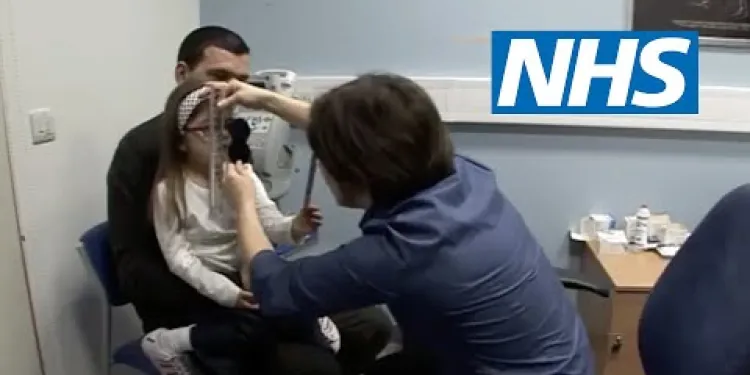
Childhood squint | NHS
Relevance: 66%
-
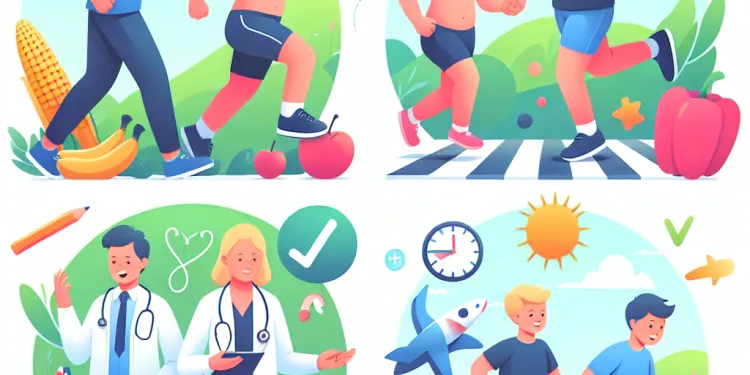
Is childhood obesity a concern in the United Kingdom?
Relevance: 65%
-

What are the current statistics on childhood obesity in the UK?
Relevance: 65%
-

Is childhood obesity a concern in the United Kingdom?
Relevance: 64%
-
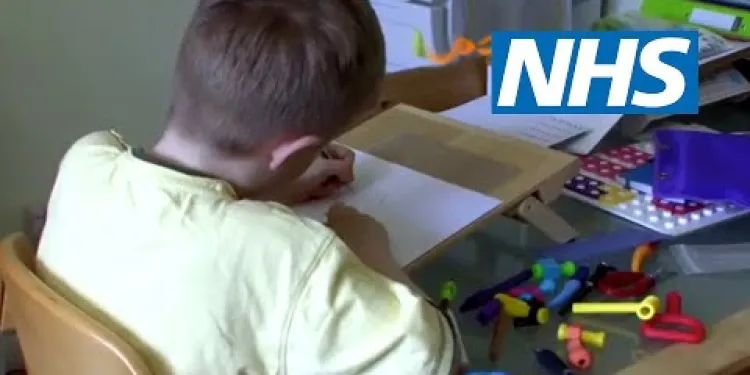
Childhood dyspraxia: James' story | NHS
Relevance: 56%
-
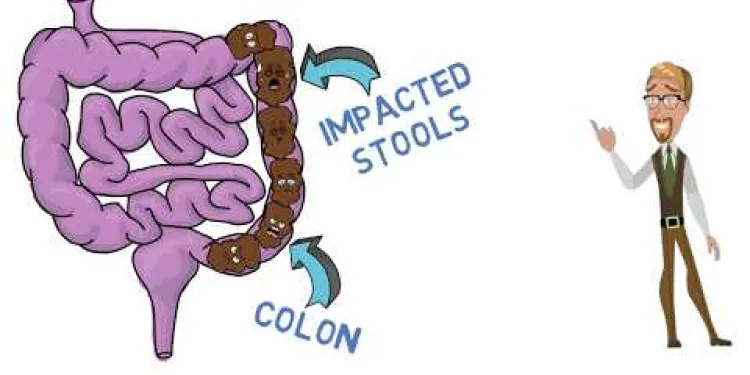
The effective treatment of childhood constipation according to NICE guidelines.
Relevance: 55%
-
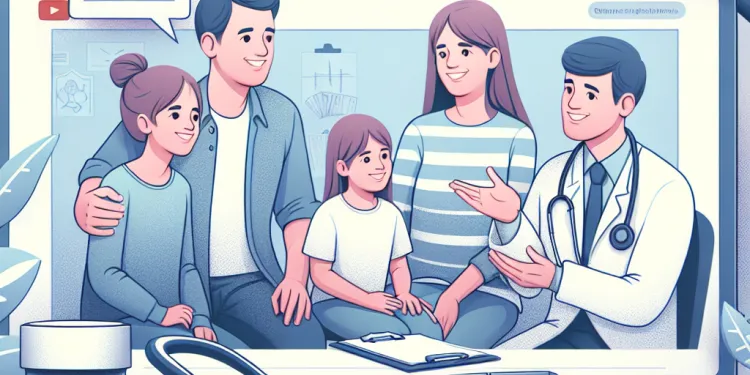
Managing Chronic Illness Within the Family
Relevance: 53%
-

Study Finds Alarming Increase in Childhood Obesity Rates Post-Pandemic
Relevance: 53%
-

Understanding and Managing Respiratory Illnesses in Families
Relevance: 52%
-

How can I prevent heat-related illnesses?
Relevance: 52%
-

Can E. coli cause illness?
Relevance: 51%
-

1. Introduction to sepsis and serious illness
Relevance: 50%
-

UK Sees Surge in Respiratory Illnesses as Weather Cools
Relevance: 50%
-

Is chronic fatigue syndrome a mental illness?
Relevance: 49%
-

An Introduction to Decompression Illness: Signs & Symptoms”. Dr Roland Armes
Relevance: 47%
-

Who is at risk for severe illness from West Nile Virus?
Relevance: 46%
-

Rise in Childhood Asthma Linked to Air Pollution in Urban Areas
Relevance: 46%
-
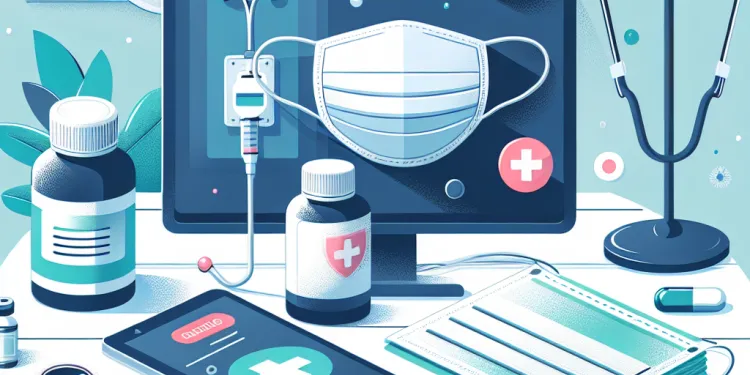
Latest Advice on Managing Respiratory Illnesses During Flu Season
Relevance: 45%
-

NHS Pensions | How to Claim? | Ill Health, Active & Deferred Members
Relevance: 42%
-

Can H3N2 cause severe illness?
Relevance: 41%
-

Can chickenpox be prevented?
Relevance: 28%
-

Is asthma more common in certain age groups?
Relevance: 22%
-

Can children outgrow asthma?
Relevance: 20%
-

Can pregnant women get chickenpox?
Relevance: 20%
-

Can children and teens have health-related anxiety?
Relevance: 20%
-

Why are vaccines important?
Relevance: 20%
-

Are there vaccines for meningitis?
Relevance: 20%
-
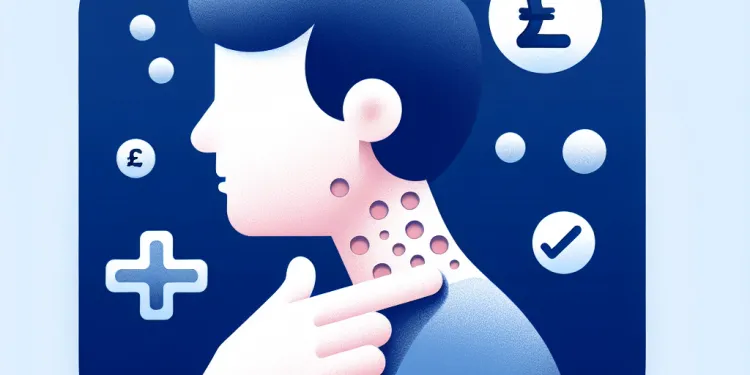
Can adults get chickenpox?
Relevance: 20%
-

How long does chickenpox last?
Relevance: 19%
-

Should I test my child for high blood pressure?
Relevance: 18%
-

What causes health-related anxiety?
Relevance: 18%
-

Why do vaccinated people sometimes still get sick?
Relevance: 18%
-
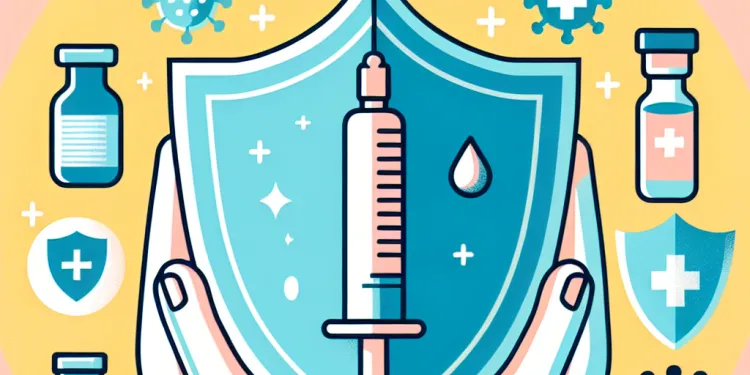
Who should receive the MMR vaccine?
Relevance: 18%
-

Is obesity more prevalent in certain regions of the UK?
Relevance: 17%
-
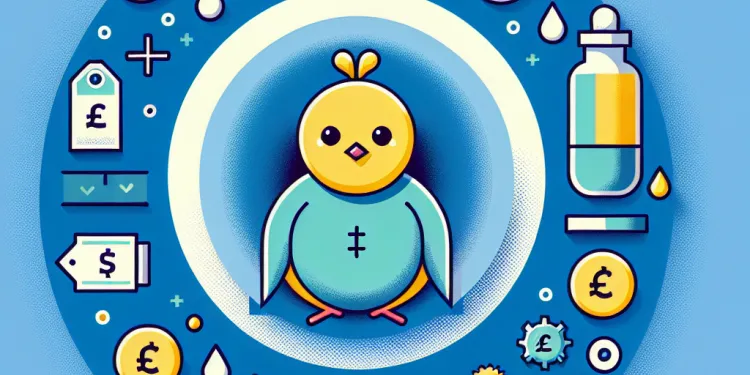
What is Chickenpox?
Relevance: 17%
-

What causes ADHD?
Relevance: 17%
-

What is Bacillus cereus?
Relevance: 16%
-

Has the sugar tax affected the sugar content in drinks?
Relevance: 16%
-
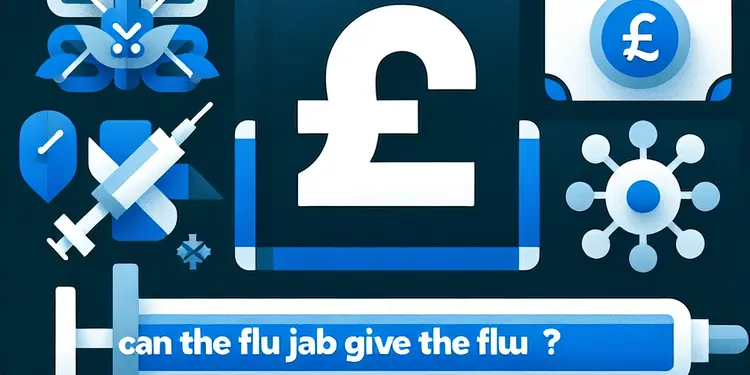
Can the flu jab give you the flu?
Relevance: 16%
Dealing with Common Childhood Illnesses
The Common Cold
The common cold is one of the most frequent childhood illnesses. It is characterized by symptoms such as a runny nose, cough, and mild fever. To manage a cold, ensure your child stays hydrated, gets plenty of rest, and consumes nutritious foods. Over-the-counter medicines, like child-safe decongestants, can alleviate symptoms but always consult your GP before administering any medication. Home remedies such as honey and lemon in warm water can also soothe a sore throat. Luckily, colds usually resolve on their own within a week or so.
Chickenpox
Chickenpox is another prevalent illness among children, causing an itchy rash and flu-like symptoms. The UK’s National Health Service (NHS) recommends keeping your child at home to prevent spreading the virus. Cool baths with added bicarbonate of soda and calamine lotion can help relieve itching. Avoid scratching to prevent infection; keeping nails short and using mittens may be helpful. Vaccination is available and highly recommended for preventing chickenpox.
Ear Infections
Ear infections are common and can cause considerable discomfort. Signs include ear pain, pulling at the ear, trouble sleeping, and fever. To ease pain, administer children’s paracetamol or ibuprofen as per NHS guidelines. Warm compresses placed gently against the ear can also offer some relief. If symptoms persist for more than a couple of days or are very severe, visiting your GP is crucial as antibiotics may be required.
Gastroenteritis
Gastroenteritis, or 'stomach flu', involves vomiting and diarrhea. It is particularly troubling in children due to the risk of dehydration. Ensure your child drinks plenty of fluids, including oral rehydration solutions available at pharmacies. Encourage frequent sips of water or clear fluids. During recovery, start with bland foods like toast or bananas before reintroducing a normal diet. If symptoms are severe or last more than a few days, contact your GP promptly.
Hand, Foot, and Mouth Disease
Hand, Foot, and Mouth Disease primarily affects young children, presenting with fever, sores in the mouth, and a rash on the hands and feet. While the disease typically resolves on its own in a week or so, it is crucial to keep your child comfortable. Offer soft foods to alleviate mouth sore discomfort and ensure good hydration. Children should stay home from nursery or school until they are better to prevent spreading the infection. Visiting your GP can clarify the diagnosis and provide further care instructions.
Understanding and actively managing these common childhood illnesses can help reduce discomfort and speed recovery. Always consult your healthcare provider for personalized advice and treatment options to ensure the health and well-being of your child.
Dealing with Common Childhood Illnesses
The Common Cold
A cold is very common in children. It often causes a runny nose, cough, and a small fever. To help your child, make sure they drink lots of water, rest a lot, and eat healthy foods. You can use special medicines from the pharmacy, like child-safe decongestants, but ask your doctor first. Home remedies like honey and lemon in warm water can make a sore throat feel better. Colds usually go away on their own in about a week.
Chickenpox
Chickenpox is another illness that kids often get. It causes an itchy rash and flu-like symptoms. The NHS says to keep your child at home so they don't spread the virus. Cool baths with some bicarbonate of soda and calamine lotion can help with the itching. Try not to scratch to avoid infections; short nails and mittens can help. There is a vaccine for chickenpox, and it's a good idea to get it.
Ear Infections
Ear infections are common and can be painful. Signs include ear pain, tugging at the ear, trouble sleeping, and fever. To help with the pain, give your child paracetamol or ibuprofen made for kids, as the NHS advises. A warm cloth placed gently on the ear can also help. If the symptoms last more than a few days or get worse, see your doctor. Your child may need antibiotics.
Gastroenteritis
Gastroenteritis, or 'stomach flu', causes vomiting and diarrhea. It can make children very sick because they might lose too much water. Make sure your child drinks lots of fluids, like water or oral rehydration solutions from the pharmacy. Encourage them to take small sips often. Start with bland foods like toast or bananas when they start to feel better, then slowly go back to a normal diet. If your child is very sick or doesn't get better in a few days, call your doctor.
Hand, Foot, and Mouth Disease
This disease mostly affects young children. It causes fever, mouth sores, and a rash on the hands and feet. It usually gets better on its own in about a week. Keep your child comfortable by giving them soft foods and making sure they drink enough water. Children should stay home from nursery or school until they feel better to avoid spreading it. Visit your doctor to make sure of the diagnosis and get more advice on care.
Knowing how to handle these common childhood illnesses can help your child feel better and recover faster. Always ask your healthcare provider for advice that is right for your child to keep them healthy and happy.
Frequently Asked Questions
What are the common symptoms of a cold in children?
Common symptoms include a runny nose, sore throat, cough, congestion, slight body aches, sneezing, and a mild fever.
How can I treat my child's fever at home?
You can treat a fever by ensuring your child stays hydrated, giving them age-appropriate fever reducers like paracetamol or ibuprofen, dressing them in lightweight clothing, and keeping the room cool.
When should I take my child to see a doctor for a cough?
You should see a doctor if the cough persists more than a week, is accompanied by high fever, difficulty breathing, or if your child is under three months old.
What should I do if my child has diarrhoea?
Ensure they stay hydrated with fluids like water, oral rehydration solutions, and clear broths. Avoid giving them sugary drinks or dairy until symptoms improve. Consult a doctor if diarrhoea persists, if there is blood in the stool, or if your child shows signs of dehydration.
How can I relieve my child's sore throat?
Offer plenty of fluids, warm soups, and age-appropriate throat lozenges. Using a humidifier in their room and encouraging older children to gargle salt water can also help.
What are the warning signs of dehydration in children?
Signs include dry mouth, lack of tears when crying, sunken eyes, decreased urination or dark urine, and lethargy.
Is it safe to give over-the-counter cold medicine to my child?
Always consult with a healthcare provider before giving any over-the-counter medicine to your child. Many cold medicines are not recommended for children under six.
How can I manage my child's allergies?
Identify and avoid allergy triggers, use antihistamines as recommended by a doctor, and keep your home free of allergens by regularly cleaning and using air purifiers.
What steps can I take to prevent common childhood illnesses?
Ensure your child is up to date with vaccinations, teach proper handwashing techniques, maintain a balanced diet and regular exercise, and avoid contact with sick individuals.
What should I do if my child has ear pain?
Apply a warm compress to the affected ear, ensure they stay hydrated, and use age-appropriate pain relievers. If the pain persists, consult a doctor as it could be an ear infection.
Can my child go to school with a cold?
Your child can usually attend school if they have mild cold symptoms without a fever. If they have a fever, are lethargic, or are unable to participate in activities, it’s best to keep them at home.
What is the best way to treat my child's rash?
Identify and eliminate any irritants, keep the skin clean and dry, use fragrance-free moisturisers, and apply over-the-counter hydrocortisone cream if recommended. Seek medical advice if the rash persists or worsens.
How can I treat my child's conjunctivitis (pink eye)?
Keep the affected eye clean by gently wiping with a warm cloth, avoid touching or rubbing the eye, wash hands frequently, and use prescribed antibiotic drops if it’s a bacterial infection.
When should I worry about my child's headache?
Consult a doctor if headaches are severe, occur frequently, are accompanied by vomiting, visual changes, or if your child shows signs of distress or confusion.
How can I comfort my child during a bout of the flu?
Ensure they rest and stay hydrated, offer nutritious fluids like broth, manage fever and aches with appropriate medications, and keep them comfortable in a quiet, darkened room.
What are the usual signs of a cold in kids?
When kids have a cold, they might:
- Sneeze a lot.
- Have a runny or stuffy nose.
- Cough often.
- Feel tired and sleepy.
- Have a sore throat.
Here are some helpful tips:
- Rest: Make sure they get lots of sleep.
- Drink: Give them water or juice to stay hydrated.
- Comfort: Keep them warm and comfortable.
If you are worried or if they feel worse, talk to a doctor.
Common signs are a runny nose, a sore throat, cough, stuffiness, small body aches, sneezing, and a mild fever.
Here are some things that can help:
- Drink lots of water and juice.
- Rest and get plenty of sleep.
- Use tissues to blow your nose.
- Ask an adult for help with medicine if you need it.
What can I do at home if my child has a fever?
If your child has a fever, here are some things you can do to help:
- Give them plenty of water to drink. This helps keep them hydrated.
- Dress them in light clothes so they don't get too hot.
- Let them rest. Sleep helps their body fight the fever.
- Use a thermometer to check their temperature.
- You can use medicine like paracetamol to help bring the fever down. Ask a doctor first!
If your child feels very sick, or the fever doesn’t go away, talk to a doctor.
You can use picture charts or apps to help explain things to your child. This can make it easier for them to understand what is happening.
When your child has a fever, you can help them feel better by doing a few things:
- Make sure they drink lots of water.
- You can give them medicine like paracetamol or ibuprofen. Make sure it is okay for their age.
- Dress them in light clothes.
- Keep the room nice and cool.
When should I take my child to the doctor for a cough?
If your child has a cough, watch to see how they are feeling. Here are some times you should go to the doctor:
- If the cough lasts more than one week.
- If your child finds it hard to breathe.
- If your child has a high fever.
- If your child is very tired or not eating.
It's good to keep a note of how your child is feeling so you can tell the doctor.
Helpful tools:
- You can use apps to track your child's symptoms.
- A thermometer can help check for a fever.
- Listening to your child's breathing can help you notice changes.
Always ask a doctor if you are worried.
See a doctor if the cough lasts more than a week. You should also see a doctor if the cough comes with a high fever, if you or your child have trouble breathing, or if your child is under three months old.
What to do if your child has diarrhoea?
If your child has diarrhoea, stay calm. Here are some simple steps to help:
- Give plenty of drinks: Make sure your child drinks water often. This helps keep them from getting too thirsty.
- Offer small meals: Give gentle foods like rice, bananas, or toast if they are hungry.
- Let them rest: Rest is important for feeling better.
- Call the doctor if worried: If your child feels very sick or the diarrhoea does not stop, call your doctor for help.
Helpful tools:
- Use a timer to remind your child to drink water.
- Make a quiet space for resting.
Make sure they drink lots of water, special drinks like oral rehydration solutions, or clear soups. Do not give them sugary drinks or milk until they feel better. Talk to a doctor if they still have diarrhoea, if there is blood in their poo, or if your child seems very thirsty or tired (which might mean they are dehydrated).
How can I help my child feel better with a sore throat?
Give the person lots of drinks. Warm soups are good too. If they are old enough, they can use special candies to help their throat feel better. Use a machine called a humidifier in their room. Older kids can also mix some salt in water and gargle with it to help their throat.
What signs tell us if a child is not drinking enough water?
When a child does not drink enough water, this is called dehydration. Look out for these signs:
- Dry lips or mouth
- Not using the bathroom much
- Dark yellow pee
- Crying with no tears
- Feeling tired or not playing much
- Feeling dizzy or having a headache
To help the child, make sure they drink water regularly. Use a special cup or straw to make it fun. If you are worried, talk to a doctor.
Signs include a dry mouth, no tears when crying, eyes looking sunken, not peeing much or pee looking dark, and feeling very tired.
Can I give store-bought cold medicine to my child safely?
If your child has a cold, you might think about giving them cold medicine from the store. It's always best to check with a doctor first, because some medicines are not safe for kids.
Ways to help your child feel better:
- Give them lots of water to drink.
- Make sure they get plenty of rest.
- Use a humidifier in their room to help them breathe.
- Ask a doctor or nurse which medicine is safe for your child.
Talk to a doctor before you give any medicine you can buy at the store to your child. Many cold medicines are not good for children who are younger than six.
How can I help my child with allergies?
Find out what makes your allergies act up and try to stay away from those things. Take allergy medicine if your doctor says it's okay. Keep your home clean and use machines to keep the air clean.
How can I stop kids from getting sick?
Make sure your child gets all their vaccines. Show them how to wash their hands well. Make sure they eat healthy foods and get plenty of exercise. Keep them away from people who are sick.
What to Do if Your Child's Ear Hurts
If your child's ear hurts, here are some simple steps you can follow:
- Stay Calm: Try to stay calm so you can help your child feel better.
- Listen to Your Child: Ask your child to tell you what they feel.
- Look for Other Signs: Check if your child has trouble hearing, a fever, or is feeling irritable.
- Use Warmth: Place a warm cloth over the ear to help with the pain.
- Seek Help: Call the doctor for advice, especially if the pain doesn’t stop or is very bad.
Here are some helpful tools:
- Pain Relief: You can give child-safe pain medicine. Check with a doctor first.
- Be Supportive: Comfort your child with hugs and kind words.
Put a warm cloth on the sore ear. Make sure they drink lots of water. Give them medicine for pain that is safe for their age. If the ear still hurts, go to the doctor. It might be an ear infection.
Can my child go to school if they have a cold?
Here are some things to think about:
- If your child has a light cold, they can go to school.
- If they have a fever, they should stay at home.
- If they feel very sick, keep them at home.
Ask the school for advice if you are unsure.
Using a thermometer can help check if your child has a fever.
If your child has a little cold but no fever, they can go to school. But if they have a fever, feel very tired, or can't join in activities, they should stay at home.
How can I help my child's rash get better?
Here are some simple steps you can try:
- Keep the rash area clean and dry.
- Use cool water to gently wash the rash.
- Pat the skin dry with a soft towel, don't rub.
- Put a soothing cream on the rash. Ask a doctor or pharmacist to suggest one.
- Make sure your child does not scratch the rash. Cutting their fingernails can help.
- Dress your child in loose, cotton clothes.
If the rash doesn't get better, see a doctor. They can give advice on what to do next.
Try to find what is making your skin itchy and get rid of it. Keep your skin clean and dry. Use creams without any smell. You can also use special cream from the shop if a doctor says it is okay. If your skin does not get better or gets worse, ask a doctor for help.
How can I help my child if they have pink eye?
If your child has pink eye, here’s how you can help:
- Keep your child's eye clean. Use a wet cloth to gently wipe away any sticky stuff.
- Wash your hands often to stop the germs from spreading.
- Don’t let your child touch or rub their eyes.
- Use tissues and throw them away after wiping their eyes or nose.
- If the doctor gives you drops or cream, follow their instructions.
Talk to the doctor if your child’s eyes are still sore or if you’re worried.
To make reading easier, you can use tools like audio books or apps that read out loud.
Keep the sore eye clean. Use a warm cloth to gently wipe it. Don't touch or rub the eye. Wash your hands a lot. If the doctor gave you medicine eye drops, use them. This helps if germs are making the eye sick.
When should I be concerned about my child's headache?
Talk to a doctor if your child has bad headaches, gets them often, throws up, has trouble seeing, or seems upset or confused.
How can I help my child feel better when they have the flu?
Make sure they get plenty of rest and drink lots of water. Give them healthy drinks like soup. If they have a fever or feel achy, give them the right medicine. Keep them cozy in a quiet room with the lights turned low.
Useful Links
This website offers general information and is not a substitute for professional advice.
Always seek guidance from qualified professionals.
If you have any medical concerns or need urgent help, contact a healthcare professional or emergency services immediately.
Some of this content was generated with AI assistance. We’ve done our best to keep it accurate, helpful, and human-friendly.
- Ergsy carfully checks the information in the videos we provide here.
- Videos shown by Youtube after a video has completed, have NOT been reviewed by ERGSY.
- To view, click the arrow in centre of video.
- Most of the videos you find here will have subtitles and/or closed captions available.
- You may need to turn these on, and choose your preferred language.
- Go to the video you'd like to watch.
- If closed captions (CC) are available, settings will be visible on the bottom right of the video player.
- To turn on Captions, click settings .
- To turn off Captions, click settings again.
More Items From Ergsy search
-

Dealing with Common Childhood Illnesses
Relevance: 100%
-

Childhood squint | NHS
Relevance: 66%
-

Is childhood obesity a concern in the United Kingdom?
Relevance: 65%
-

What are the current statistics on childhood obesity in the UK?
Relevance: 65%
-

Is childhood obesity a concern in the United Kingdom?
Relevance: 64%
-

Childhood dyspraxia: James' story | NHS
Relevance: 56%
-

The effective treatment of childhood constipation according to NICE guidelines.
Relevance: 55%
-

Managing Chronic Illness Within the Family
Relevance: 53%
-

Study Finds Alarming Increase in Childhood Obesity Rates Post-Pandemic
Relevance: 53%
-

Understanding and Managing Respiratory Illnesses in Families
Relevance: 52%
-

How can I prevent heat-related illnesses?
Relevance: 52%
-

Can E. coli cause illness?
Relevance: 51%
-

1. Introduction to sepsis and serious illness
Relevance: 50%
-

UK Sees Surge in Respiratory Illnesses as Weather Cools
Relevance: 50%
-

Is chronic fatigue syndrome a mental illness?
Relevance: 49%
-

An Introduction to Decompression Illness: Signs & Symptoms”. Dr Roland Armes
Relevance: 47%
-

Who is at risk for severe illness from West Nile Virus?
Relevance: 46%
-

Rise in Childhood Asthma Linked to Air Pollution in Urban Areas
Relevance: 46%
-

Latest Advice on Managing Respiratory Illnesses During Flu Season
Relevance: 45%
-

NHS Pensions | How to Claim? | Ill Health, Active & Deferred Members
Relevance: 42%
-

Can H3N2 cause severe illness?
Relevance: 41%
-

Can chickenpox be prevented?
Relevance: 28%
-

Is asthma more common in certain age groups?
Relevance: 22%
-

Can children outgrow asthma?
Relevance: 20%
-

Can pregnant women get chickenpox?
Relevance: 20%
-

Can children and teens have health-related anxiety?
Relevance: 20%
-

Why are vaccines important?
Relevance: 20%
-

Are there vaccines for meningitis?
Relevance: 20%
-

Can adults get chickenpox?
Relevance: 20%
-

How long does chickenpox last?
Relevance: 19%
-

Should I test my child for high blood pressure?
Relevance: 18%
-

What causes health-related anxiety?
Relevance: 18%
-

Why do vaccinated people sometimes still get sick?
Relevance: 18%
-

Who should receive the MMR vaccine?
Relevance: 18%
-

Is obesity more prevalent in certain regions of the UK?
Relevance: 17%
-

What is Chickenpox?
Relevance: 17%
-

What causes ADHD?
Relevance: 17%
-

What is Bacillus cereus?
Relevance: 16%
-

Has the sugar tax affected the sugar content in drinks?
Relevance: 16%
-

Can the flu jab give you the flu?
Relevance: 16%


